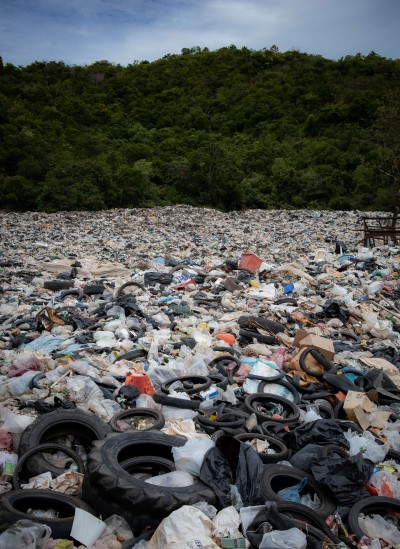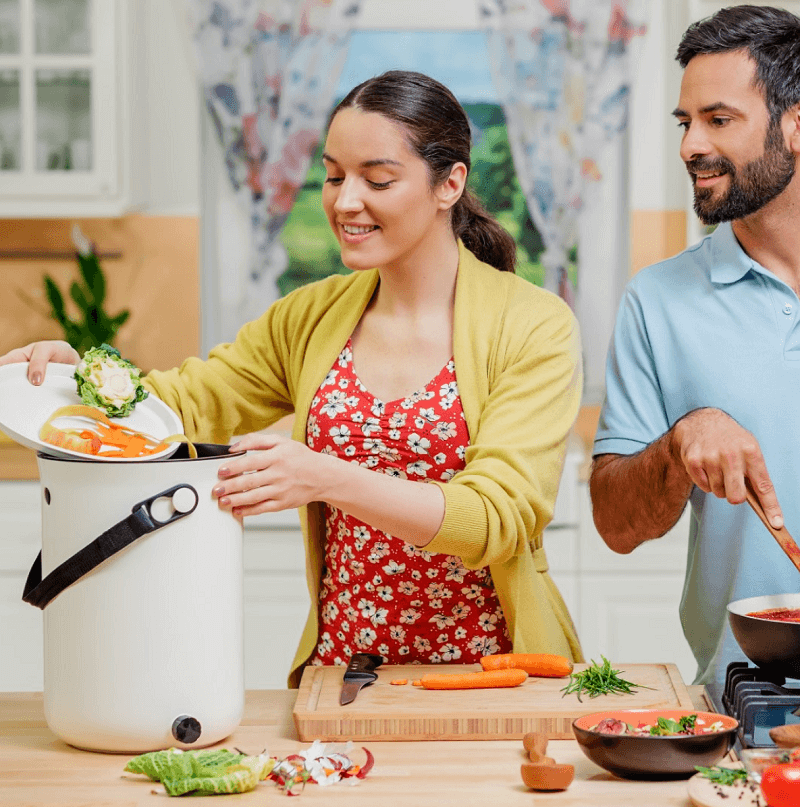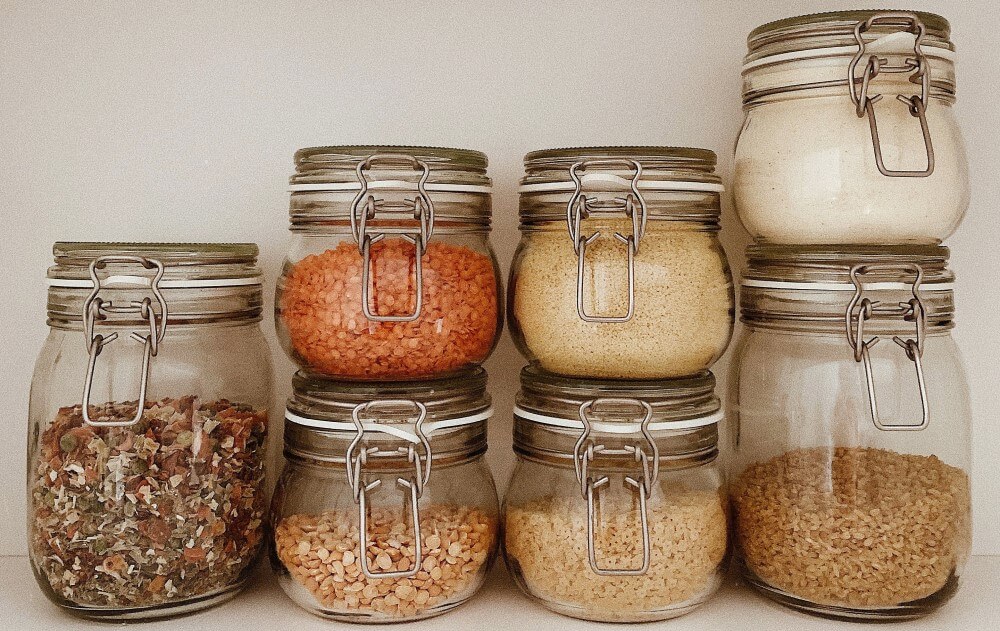In recent years, we have heard a lot about zero waste: bulk shops, solid shampoo, glass jars, ... But we don't always know where to start or why some people go down this path. That's why we wanted to go back to the basics and explain to you what zero waste is all about!
This article is the first in a (long) series that will guide you step by step towards this new approach to fighting pollution together. Depending on each room of the house and what is in it, but also in the course of the festive events that (normally) punctuate a year, we will propose you to discover sustainable alternatives to improve and simplify your daily life!
What is zero waste?
Zero waste is a way of life that encourages us to reduce the amount of waste we produce and to try to change the way we consume to waste less.
Why adopt a zero waste approach?
The waste we generate is one of the main sources of pollution of various kinds:
- Air pollution with waste incineration, open dumps (emitting methane)
- Water pollution which mainly comes from industrial waste but not only! Our household waste dumps are also involved. When it rains for example, some of the waste can get mixed with water.
- Soil pollution from landfills.
Waste has an impact on our health and our environment: pollution of water sources, fish ingesting toxic compounds that eventually end up on our plates, climate change, air pollution... all reasons that push us to adopt a more sustainable lifestyle and in our case, a zero waste lifestyle.

Moreover, zero waste allows you to simplify your life and save money! Sustainable and natural alternatives are often cheaper and we need less (typical example: solid shampoo). We don't sacrifice anything for our comfort and we realize which essentials we need. We live better in every sense of the word.
The principle of zero waste
The best waste is the waste we don't produce!
The first thing to know and to keep in mind is that the best waste is the one we do not produce! Indeed, we often advocate recycling plastic bottles for example, but what could be better than recycling the water bottle we take to work? Take a stainless steel water bottle for example and not produce a plastic bottle. Especially since recycling is not THE solution to fight global warming! You may not know it, but Belgium exports some of its waste to China or, more recently, to Turkey. According to a Greenpeace report of April 2019, Belgium is even in the top 5 countries that export the most plastic waste in the world1. To believe that the recycling system is efficient and self-sufficient is impossible.
Adopting a zero waste lifestyle is certainly not about reading and studying dozens of 500 page manuals! It's more about adopting a mindset. Béa Johnson, a French expatriate living in the United States and a pioneer of the "zero waste" movement thanks to her blog, came up with the "5Rs principle".
The name of this principle is above all a mnemonic: it is a question of remembering 5 words that begin with the letter R. These 5 words will accompany us throughout our zero waste approach: refuse, reduce, reuse, recycle, "rot". We can even add a 6th R: repair!
First of all, it is important to note that the order of these 6Rs is important for maximum overall efficiency. It is easier to refuse the futile than to recycle useless things that we have not refused.
Let's explain these 6 Rs in more detail:
Refuse : The first step to adopting a zero waste lifestyle is to refuse what you don't need: no to advertising in your mailbox, no to plastic bags, no to free gifts (such as samples, small shampoos in hotels, etc.). In our consumer society, accepting these kinds of free things creates more demand and therefore more unnecessary pollution. We often think that it will make us "happier" to accept these objects and we often forget that they will end up in the bin anyway. And the satisfaction they give us is often so short-lived compared to the time it takes for them to disintegrate in nature.
Translated with www.DeepL.com/Translator (free version)
Reduce : reduce your purchases to what you need. Have you seen a cute yellow jumper? Ask yourself: do I really need it? Try to focus on quality rather than quantity: a healthy, durable product will certainly make you happier. Don't hesitate to donate/sell what you don't use to give new life to your objects or clothes. For example, you can also reduce the amount of household products in your home (did you know that to do all your housework, only three natural products, baking soda, white vinegar and black soap are enough?).
Reuse : Reuse should not be confused with recycling. When recycling, the product is transformed into another product. Conversely, reusing a product means using it several times without changing its form. For example, if you have bought mayonnaise in a jar, think about washing the jar and reusing it, possibly to store your seeds bought in bulk.
Recycle : It is important to be able to recycle so that objects can have a second life, but as mentioned above, recycling is not 100% efficient. This is why this step is the second to last. We should therefore try to eliminate disposable products from our daily lives, even before thinking about recycling.
Rot or Compost : The vast majority of organic waste is compostable and can be reused as potting soil for your flowers. So if you have a garden, don't hesitate to start! If you don't have a garden, there are solutions, such as kitchen composters or neighbourhood composters. Don't hesitate to ask about these. If you don't have a compost bin, you can also put your green waste in biodegradable bags to be recycled in methanisation centres.
Repair : To prolong the life of your objects, repairing them helps to reduce waste. This is a practice that has been forgotten for several decades. It is therefore necessary to (re)learn how to sew a hole in a pair of trousers or to repair a bicycle tyre. For some time now, "repair cafés" have been springing up in towns and villages, allowing residents to repair their objects free of charge by learning how to do it themselves.
After implementing these steps, you will see the benefits of zero waste :
- at the level of your wallet : you will save money because you will consume less and better.
- in your schedule : less shopping, less errands, less stuff to put away, more time for yourself and for others!
- your body will thank you: you will avoid industrial products and consequently the undesirable ingredients they contain, such as endocrine disruptors, petroleum derivatives, aluminium salts, etc.
- the environnement will thank you: all the waste you avoid is a few more that won't end up in the environment afterwards!
To conclude...
We hope you enjoy this article and that it gives you the motivation to start introducing zero waste into your daily life!
Keep in mind that a zero waste lifestyle is not something that can be adopted overnight, it is a series of habits that need to be developed to change your daily life towards something better for you and for the planet. So don't hesitate to go at your own pace, and why not set yourself easily achievable goals and challenges such as, for example, replacing a product each week with a zero-waste alternative or changing your habits by starting with the bathroom, then the kitchen, then the laundry room, and so on.
Don't hesitate to read our other blogs which inform you about ecological and sustainable alternatives to everyday objects: dishwasher soad to do yourself, period panties and menstrual cups, protective and natural shaving gel, ceramic beads for water purification, and many more !
See you soon, for new zero waste adventures!
Titi the Elk & Alizee



